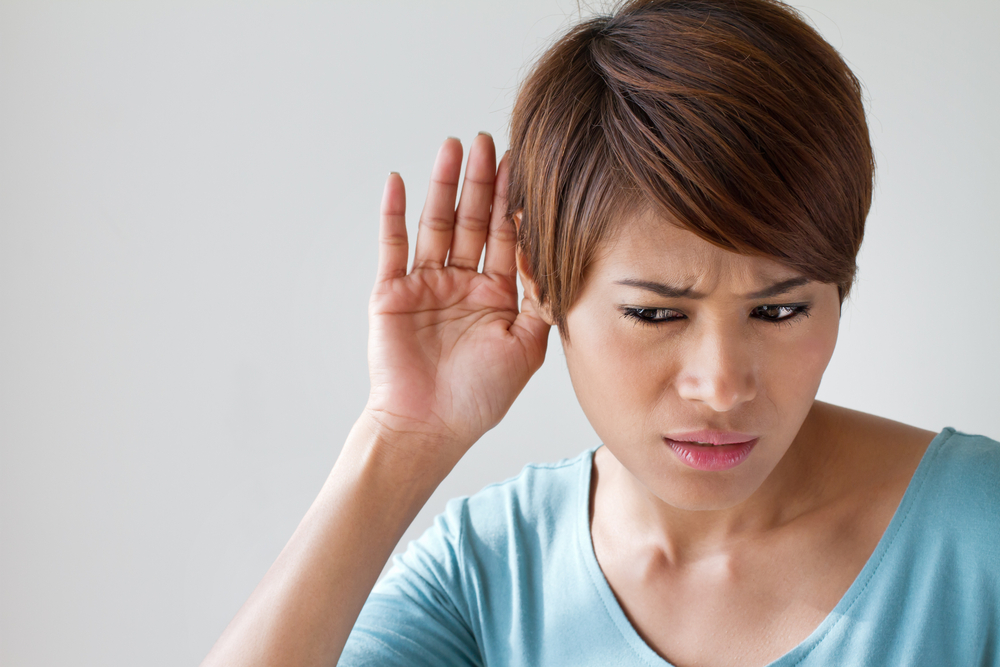Low Iron Levels May Be Linked to Hearing Loss

When people have low levels of iron in their blood, they may develop a condition called iron deficiency anemia, which is known to have wide-ranging effects throughout the body, and now, a new study suggests that this condition may be linked to hearing loss as well.
In the study, adults who had iron deficiency anemia were more than twice as likely to develop a specific type of hearing loss, called combined hearing loss, compared with those who did not have iron deficiency anemia, according to the study.
In the study, published Dec. 29 in the journal JAMA Otolaryngology-Head & Neck Surgery, the researchers looked at data from the medical records of more than 300,000 adults in Hershey, Pennsylvania. The participants' ages ranged from 21 to 90; the average age was 50. [7 Ways the Mind and Body Change with Age]
Based on the medical records, the researchers identified the people in the study who had iron deficiency anemia as well as any diagnoses of hearing loss.
Hearing loss was divided into three categories: sensorineural hearing loss, which results from damage to the inner ear, damage to the nerve that runs from the ear to the brain, or damage to the brain; conductive hearing loss, which occurs when sound cannot travel through the ear properly; and combined hearing loss, which is a combination of the two.
The researchers found that the people with iron deficiency anemia were 2.4 times more likely to have combined hearing loss compared with those who did not have iron deficiency anemia. The people with iron deficiency anemia were also 1.8 times more likely to have sensorineural hearing loss. There was no link, however, between iron deficiency anemia and conductive hearing loss, according to the study.
Earlier research suggested several potential reasons why iron deficiency anemia may be linked to hearing loss and, in particular, to sensorineural hearing loss, the researchers, led by Kathleen Schieffer, a doctoral student at Pennsylvania State University College of Medicine, wrote in the study.
Sign up for the Live Science daily newsletter now
Get the world’s most fascinating discoveries delivered straight to your inbox.
Sensorineural hearing loss can develop when damage occurs to the tiny blood vessels in the ear, and iron deficiency anemia can put a person at risk for such damage. For example, iron deficiency anemia has been linked to several blood disorders that can cause such damage to these delicate blood vessels. In addition, the condition has been linked to problems with myelin, a sheath that surrounds nerve cells, including the nerve that runs from the ear to the brain, the researchers wrote.
Indeed, the researchers had hypothesized that iron deficiency anemia would be more likely to be linked to sensorineural hearing loss than to conductive hearing loss. An earlier study from Taiwan, for example, found a link between iron deficiency anemia and sudden sensorineural hearing loss, a type of hearing loss that develops in less than 72 hours, the researchers wrote.
Conductive hearing loss, on the other hand, is often caused by more "mechanical" problems, such as blockages in the ear, including those caused by earwax or fluid, or perforated eardrums. Therefore, the researchers did not hypothesize that conductive hearing loss would be linked to iron deficiency anemia, they wrote.
The authors noted that the findings suggest that there is an association between iron deficiency anemia and certain types of hearing loss, and that the study does not prove a cause-and-effect relationship between the two. In addition, there were several limitations to the study, they noted. For example, although the researchers were able to adjust the results to account for differences between the sexes, they were not able to account for other risk factors for hearing loss, such as smoking status, high blood pressure and diabetes. More research is needed to tease out the possible effects of these other factors.
Iron deficiency anemia can be treated easily with iron supplements, so future studies should focus on whether this can help prevent hearing loss, the researchers wrote.
Originally published on Live Science.












